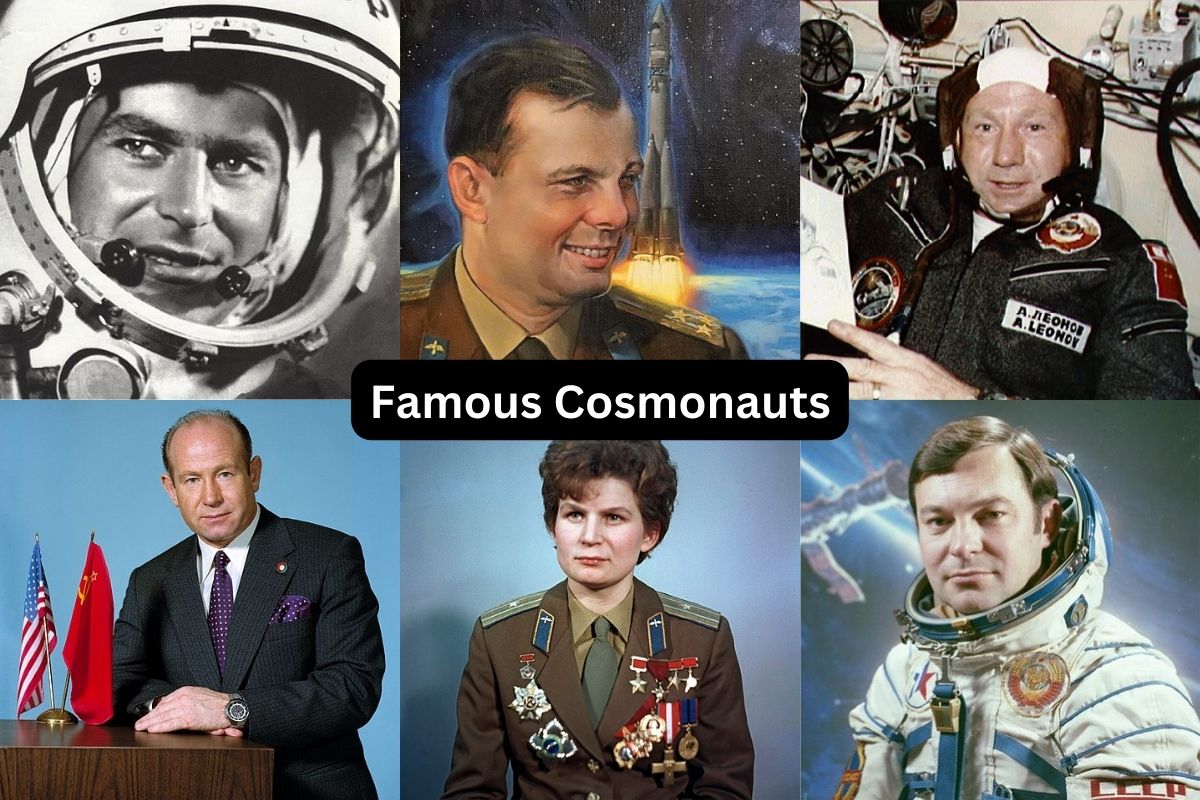The history of space exploration is replete with remarkable achievements, and at the forefront of these pioneering missions were cosmonauts from the Soviet Union and later, Russia.
In this article, we will delve into the lives and missions of some of the most famous cosmonauts, highlighting their significant accomplishments and the milestones they achieved in the realm of space exploration.
From Yuri Gagarin’s historic first orbit of the Earth to Valery Polyakov’s record-breaking stay in space, this journey through space history showcases the courage, dedication, and scientific contributions of these iconic figures.
Famous Cosmonauts
1. Yuri Gagarin – Vostok 1 (1961)
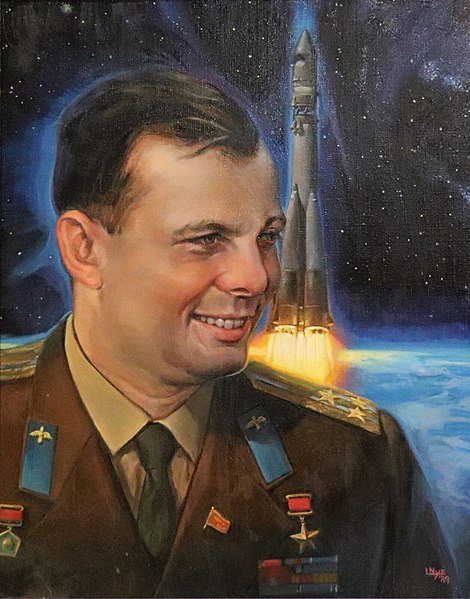
Yuri Gagarin made history on April 12, 1961, when he became the first human in space. He piloted the Vostok 1 spacecraft during this historic mission.
Gagarin’s spacecraft completed one orbit around the Earth, and the entire mission lasted approximately 108 minutes.
Also Read: Famous American Astronauts
This mission marked a significant milestone in the Space Race between the United States and the Soviet Union, demonstrating the Soviet Union’s capabilities in space exploration.
2. Valentina Tereshkova – Vostok 6 (1963)
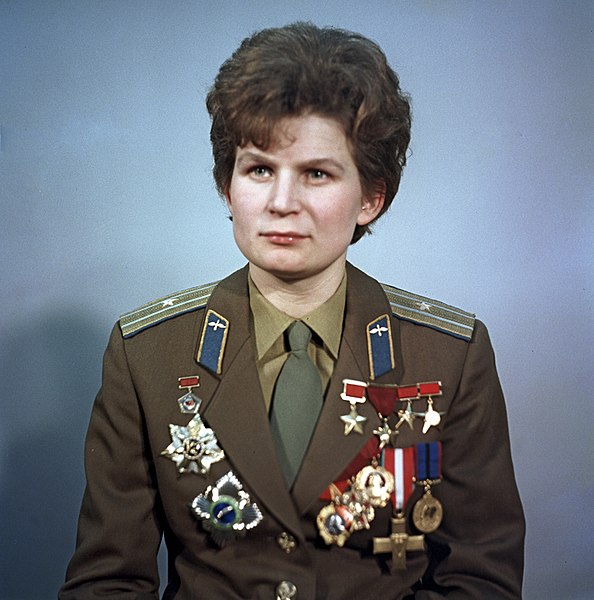
Valentina Tereshkova, a Soviet cosmonaut, made history on June 16, 1963, by becoming the first woman to travel into space. She flew aboard the Vostok 6 spacecraft.
During her mission, Tereshkova orbited the Earth 48 times over a period of approximately three days, proving that women could also excel in space exploration.
Her achievements were celebrated worldwide and marked a significant step in gender equality in space.
3. Alexei Leonov – Voskhod 2 (1965)
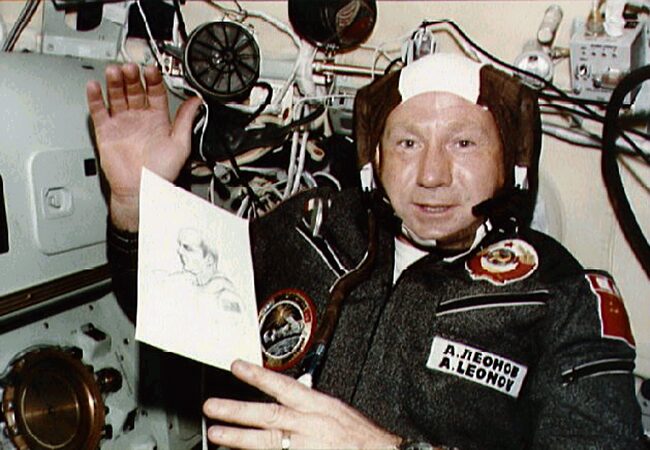
Alexei Leonov achieved a historic milestone on March 18, 1965, during the Voskhod 2 mission. He became the first human to conduct a spacewalk, or extravehicular activity (EVA), when he exited the Voskhod 2 spacecraft for a brief period in a specialized spacesuit.
Leonov’s spacewalk lasted approximately 12 minutes and was a challenging and pioneering feat, considering the limited technology and experience available at the time.
This achievement contributed to the development of future spacewalks and paved the way for more complex space missions.
4. Gherman Titov – Vostok 2 (1961)
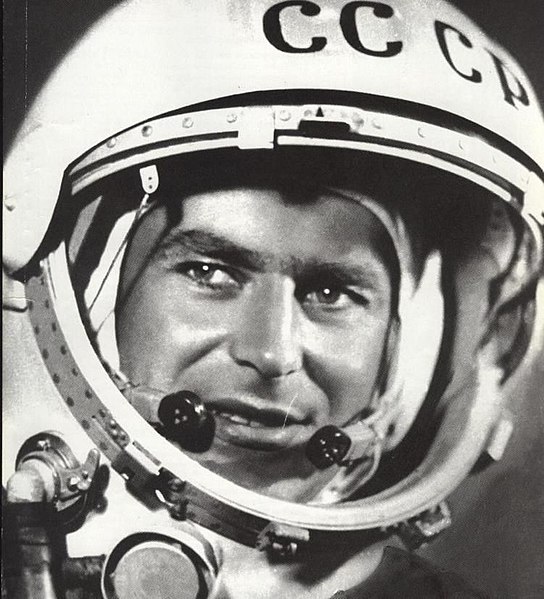
Gherman Titov made history on August 6, 1961, when he became the youngest person to travel to space at the age of 25. He piloted the Vostok 2 spacecraft during this mission, which marked the second manned spaceflight of the Soviet space program.
Titov completed 17 orbits around the Earth during his 25-hour mission, contributing to the early achievements of Soviet space exploration.
5. Vladimir Komarov – Soyuz 1 (1967)
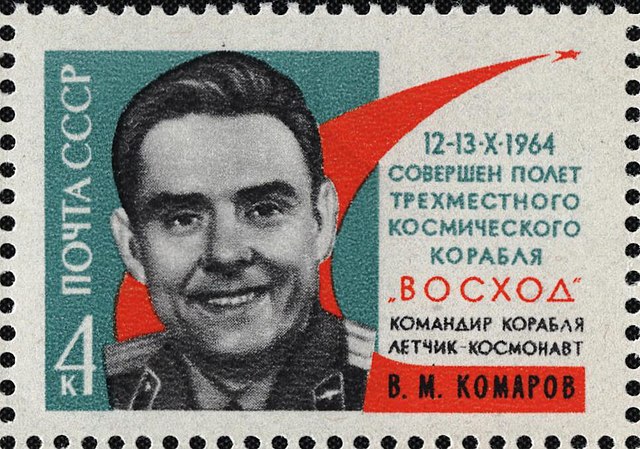
Vladimir Komarov was a Soviet cosmonaut who tragically became the first human fatality in space on April 24, 1967. He was the commander of the Soyuz 1 spacecraft during this mission.
Tragically, Soyuz 1 encountered multiple technical problems during reentry, leading to a crash landing that resulted in Komarov’s death. His sacrifice highlighted the risks and challenges of space exploration and contributed to safety improvements in subsequent missions.
6. Alexei Arkhipovich – Apollo-Soyuz Test Project (1975)

Alexei Arkhipovich played a significant role as the commander of the Soviet Soyuz spacecraft during the Apollo-Soyuz Test Project (ASTP) in 1975. The ASTP mission was a historic moment in the Cold War era, as it represented the first joint mission between the United States and the Soviet Union during the height of the space race.
The mission aimed to test the compatibility of American and Soviet spacecraft and demonstrated international cooperation in space.
The successful docking and joint activities between the American Apollo and Soviet Soyuz crews marked a symbolic end to the Space Race and the beginning of a new era of space cooperation between the two superpowers.
Alexei Arkhipovich’s leadership and participation in this mission were instrumental in achieving this milestone.
7. Svetlana Savitskaya – Soyuz T-12 (1984)

Svetlana Savitskaya made history during the Soyuz T-12 mission in 1984 when she became the first woman to conduct a spacewalk (extravehicular activity or EVA). She was part of the Soviet crew that docked with the Salyut 7 space station.
During her spacewalk, Savitskaya spent over three hours outside the spacecraft, conducting various experiments and performing maintenance tasks. Her achievements further broke gender barriers in space exploration.
8. Yuri Romanenko – Multiple missions, including Mir and Soyuz (1987)

Yuri Romanenko was a Soviet cosmonaut known for his multiple missions in space. One of his notable missions was his time spent aboard the Mir space station. In 1987, Romanenko set a new endurance record by spending 326 days in space during his stay on Mir.
This record showcased the human capacity for extended spaceflight and the importance of space stations for scientific research and long-duration missions.
9. Valery Polyakov – Mir (1994-1995)

Valery Polyakov holds the world record for the longest consecutive time spent in space by any human. He spent 437 days aboard the Mir space station from January 1994 to March 1995.
Polyakov’s mission provided valuable insights into the effects of long-duration spaceflight on the human body and contributed to our understanding of space medicine and physiology.
10. Sergei Krikalev – Multiple missions, including Mir and International Space Station (Various years)

Sergei Krikalev is a Russian cosmonaut who made significant contributions to space exploration over several missions. He spent over 800 days in space during his career, with missions on both the Mir space station and the International Space Station (ISS).
Krikalev’s extensive experience in space operations and his role in international space collaborations contributed to advancements in space research and cooperation between nations.
